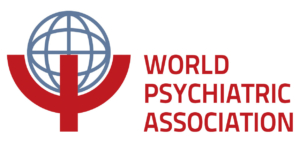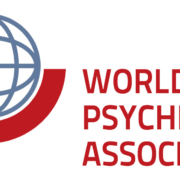Study Suggests Schizophrenia May Be Detectable Years Before Its Onset
 “Problems abound in defining schizophrenia,” wrote the late Colorado Recovery founder Richard Warner in his book The Environment of Schizophrenia. Symptoms can vary in type and severity over time, with periods of worsening and remission of symptoms. It’s frequently difficult to distinguish between symptoms of bipolar disorder for schizophrenia.
“Problems abound in defining schizophrenia,” wrote the late Colorado Recovery founder Richard Warner in his book The Environment of Schizophrenia. Symptoms can vary in type and severity over time, with periods of worsening and remission of symptoms. It’s frequently difficult to distinguish between symptoms of bipolar disorder for schizophrenia.
The cause of the illness is also unknown. “There is no single organic defect or infectious agent which causes schizophrenia, but a variety of factors increase the illness—among them genetics and obstetric complications,” wrote Dr. Warner. Then there is the onset mystery of why schizophrenia “normally begins in adolescence when important risk factors, such as genetic loading and neonatal brain damage, are present from birth or sooner.”
New research is now suggesting that the risk of schizophrenia and bipolar disorder may be detectable years before the illnesses begin. A University College Dublin-led study funded by the Health Research Board found that 50 percent of people who developed these mental health disorders had attended specialist child and adolescent mental health services (CAMHS) in childhood.
Published in the journal World Psychiatry, the findings suggest the possibility of earlier intervention and even prevention, co-author Professor Ian Kelleher from the UCD School of Medicine told Neuroscience. The study was carried out in conjunction with the Finnish Institute for Health and Welfare (THL).
“In a total population study of all individuals born in Finland in 1987 and followed up to 28 years, half of all psychosis and bipolar diagnoses occurred in individuals who had attended CAMHS during childhood or adolescence,” wrote study authors Kelleher, Lång, Ramsay, Yates, et al.
The authors felt that there was a significant window of opportunity for intervention in terms of the time from initial CAMHS attendance to a diagnosis of psychosis or bipolar disorder.
“These findings highlight an enormous, untapped potential for the prediction of psychosis and bipolar disorder within already existing structures providing specialist pediatric mental health care. They support a new focus for psychosis and bipolar disorder prediction efforts on specialist community and inpatient CAMHS and present exciting new opportunities for psychosis and bipolar disorder prevention research.”
They wrote that “a key finding of our study was that in contrast to the small proportion of psychosis cases identified by current high-risk strategies, at least half of all individuals diagnosed with psychosis or bipolar disorder by age 28 years had, at some point in their childhood or adolescence, attended specialist CAMHS.”
Furthermore, the researchers found that their findings “also highlight the importance of the transition between adolescent and adult mental health services. The reasons for presenting to CAMHS differ from those for presenting to adult mental health services, and only a small minority of CAMHS patients are subsequently referred to the latter services.”
Stressing the importance of early intervention, Professor Kelleher told Neuroscience: “We know it’s crucial to intervene as early as possible to prevent some of the worst effects of these illnesses. But ideally, we would like to be able to intervene even before the onset of illness, to prevent it altogether.”
Colorado Recovery opened as an independent treatment center in Boulder in 2006 to create a non-hospital treatment center for people with serious mental illness that employed the most effective diagnostic and treatment methods and focused on respectful, compassionate, and optimistic care.
Our treatment facility provides the services needed to address schizophrenia, bipolar disorder, and other serious mental illnesses which are specific to each individual. About half of our clients are under 35 years of age and we expect good outcomes regardless of the duration of the disorder. Clients of any age will feel comfortable in our program. Call us at 720-218-4068 to discuss treatment options for you or the person you would like to help.





